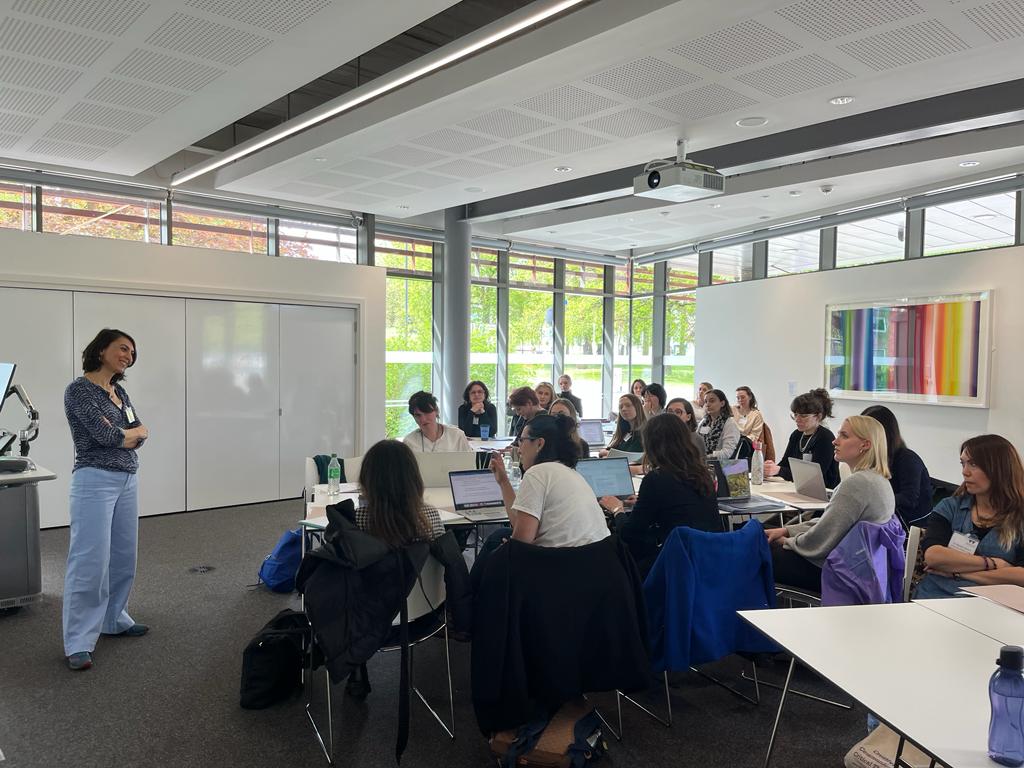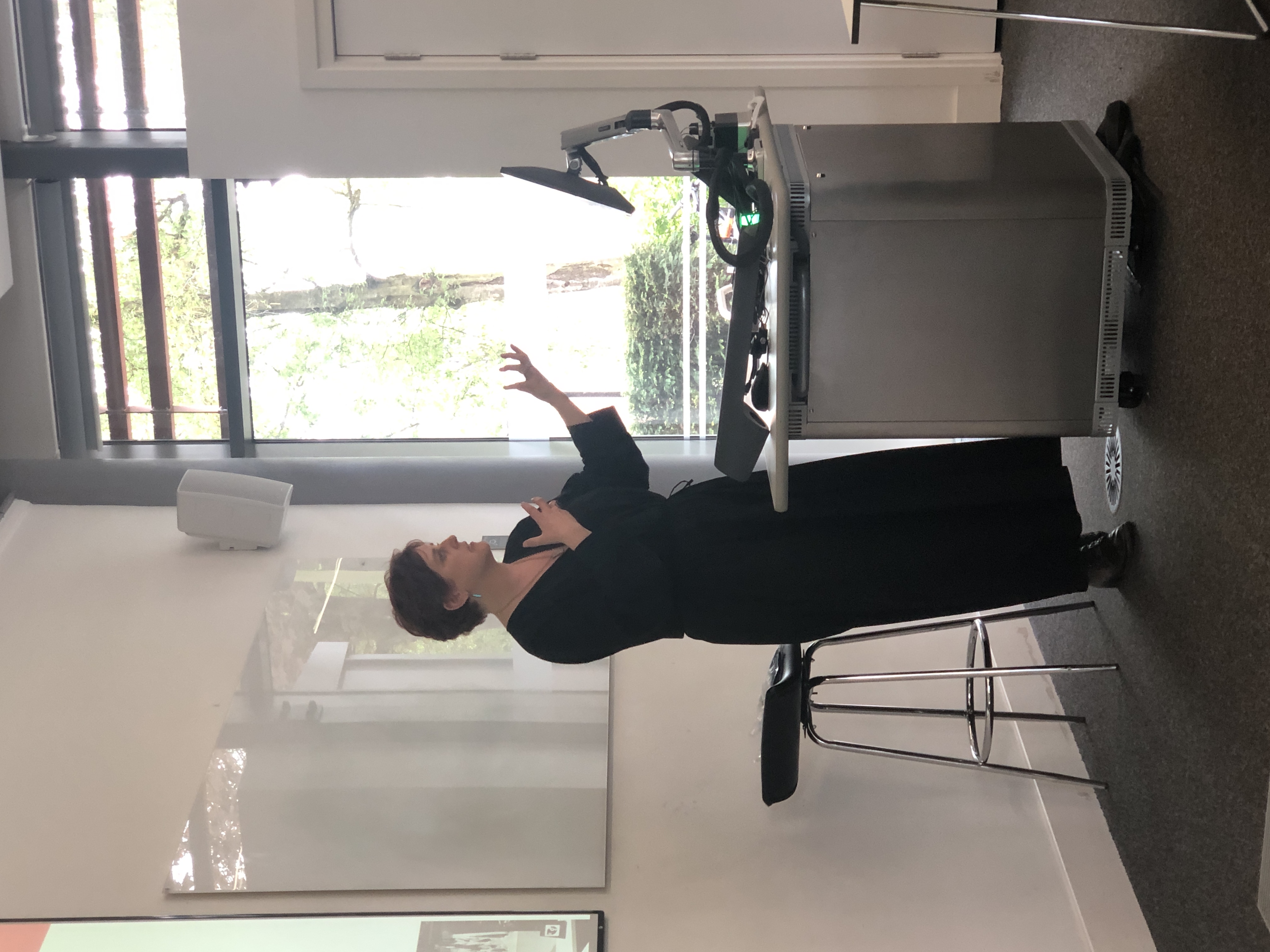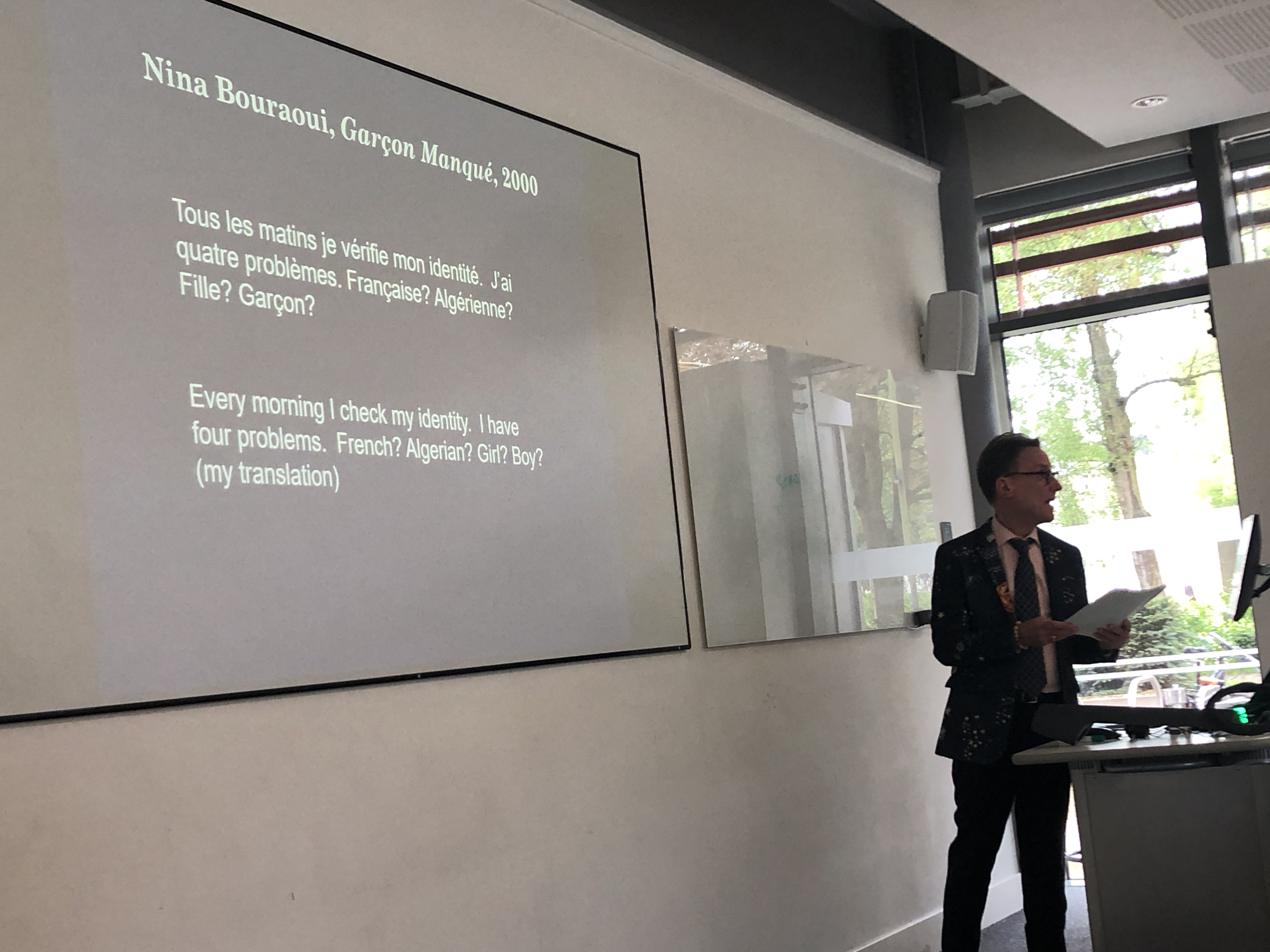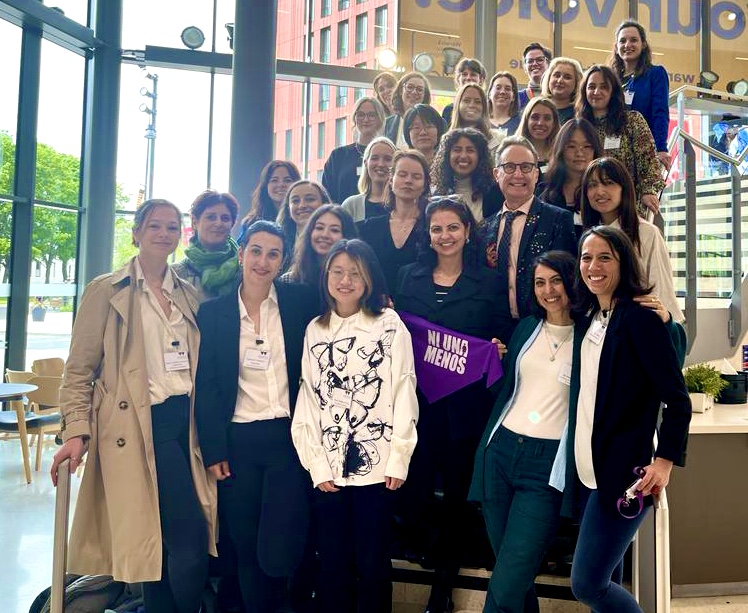Warwick School of Feminist Translation: Interdisciplinary Perspectives
The Warwick School of Feminist Translation: Interdisciplinary Perspectives, held at the University of Warwick on 11 and 12 May 2023, brought together twenty-five PhD students/early-career scholars and five leading academics with interdisciplinary expertise on the feminist, queer and decolonial politics of translation to reflect upon feminist translation as an activist theory and practice of resistance and social change. Dr Emek Ergun (Women’s and Gender Studies and Global Studies, University of North Carolina at Charlotte) discussed the making of transnational feminist resistance and solidarity in translation, drawing on her recently published book Virgin Crossing Borders: Feminist Resistance and Solidarity in Translation; Dr Olga Castro (Translation and Transcultural Studies, University of Warwick) addressed the ethical dimension of feminist translation strategies in the era of transnational feminism, challenging misconceptions about the alleged universality of so-called Canadian feminist translation strategies; Prof Maud Bracke (Modern European History, University of Glasgow) traced global transfers and local recontextualisations in 20th Century European feminism via translation, with special attention to women's health movements in the 1970s; and Prof William J Spurlin (English and Creative Writing, Brunel University London) explored the queer potential of migration and/as translation from a decolonial approach, focusing on recent queer autofictional francophone writing from the Maghreb. These engaging talks led to lively discussions with the participants. These four scholars, together with Dr Luciana Carvalho Fonseca (Modern Languages, São Paulo), provided feedback to participants on their research projects related to feminist translation and answered their previously submitted questions, both during the dedicated group-feedback sessions and during the collective feedback and networking session. These intellectual exchanges will hopefully lead to innovative approaches in future feminist translation studies research and will also bridge the disciplinary gap between translation studies scholars interested in feminism and transnational feminist studies scholars interested in translation as a tool for enabling cross-border solidarities.
For more information, see: https://wakelet.com/wake/VIqmWKeyg0YA2y6hYlqvM
Programme here: https://warwick.ac.uk/fac/arts/modernlanguages/academic/oc/school-feminist-translation/programme/
Quotes from your project team about how the Connecting Cultures GRP funding has helped you achieve your objectives.
Professor William Spurlin, invited scholar who gave a plenary on Friday 12 May
Professor in Comparative Literature and Queer Translation, Brunel University London, UK
Wonderful summer school organised through the Feminist School of Translation Studies at Warwick. The international flavour of both faculty and participants made for lively discussion and debate, which produced new knowledge and around interdisciplinary perspectives in translation theory and practice. The excitement and buzz in the discussion periods following lectures by faculty, in smaller seminars, and informally at lunch, during breaks, and the networking session at the end enabled not only ideas around feminist and queer translation to circulate and flourish, but enabled the projects proposed by the participants to develop and become more concrete. This summer school was the start of something new and innovative and should not be a singular event, but must continue every summer so that it will lead internationally in the development of translation studies informed by a range of interdisciplinary approaches, including feminist and gender studies, queer studies, postcolonial studies, and cultural and global studies. Both organisers did an amazing job with the summer school and should be very proud for being such a positive influence on all of those bright young scholars who participated with such interesting projects.
Dr Luciana Carvalho Fonseca, invited scholar who contributed to group-feedback sessions taking students working on interpreting and practical translation (PhD by practice).
Assistant Professor in the Department of Modern Languages, University of São Paulo, Brazil
I would like to thank the Organizers of the Warwick School of Feminist Translation for such a productive and culturally rich and diverse event out of which international academic relations have come out strengthened and scholarship will certainly unfold. Feminist Translation is a burgeoning field within translation studies and events such as this one demonstrates the increasing interest in the field on the part of young researchers. I would also like to extend my gratitude to Connecting Cultures GRP for the funding that enabled myself and others fulfill our academic goals of nurturing an international network of Feminist Translation scholars and students committed to research and social transformation through feminism and translation. I want to thank you for helping us make a positive difference.
Dr Emek Ergun, co-organiser who gave a plenary on Thrusday 11 May
Associate Professor in the Department of Global and Women's Studies, University of North Carolina at Charlotte, US
The Warwick School of Feminist Translation was such an academic success that it surpassed all my expectations as one of the two co-organizers and five scholars. Indeed, the 25 participants of the School, the majority of which were doctoral and Master’s students from various universities from around the world, frequently stated that the scholars’ presentations and the following Q&A sessions, the small feedback sessions they had with the scholars, and the social networking events they had in and in between the sessions were invaluable for their ongoing research projects and broader academic journeys. Given that many of the students who came to the School had not previously had a chance to closely work with a feminist and queer translation studies expert in their academic programs, it is no wonder they found the Warwick School uniquely informative and intensely enriching. This is precisely why the participants repeatedly asked us to replicate the School in the near future and make it a longer event. I am grateful to the welcoming faculty, staff, and students of Warwick University, to the Connecting Cultures GRP funding that enabled this wonderful event, and to all the participants, who not only boosted my enthusiasm for feminist and queer translation studies, but also enhanced my interdisciplinary perspectives and knowledge on the subject matter. The high application rate as well as the consistent feedback we received from the participants clearly revealed the growing interest in the feminist and queer studies of translation and showed that Warwick School needs to be continued in the future. The highly interactive, interdisciplinary, and international format of the School created an intellectually robust and generative environment. Therefore, I am sure the School will not only play a role in facilitating the inter/disciplinary and geographic expansion of the field of feminist translation studies, but also inspire the production of higher-quality theses and publications from newcomers in the field.






